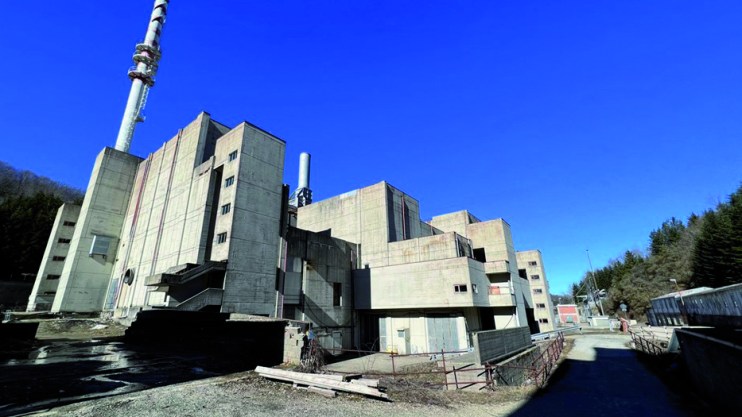Newcleo starts plans to ‘decarbonise oil and gas’ and go nuclear instead

Newcleo is looking to develop a unique lead-cooled fast reactor (LFR) technology that it says will decarbonise the oil and gas markets.
The company has signed a Memorandum of Understanding with upstream oil and gas firm Viaro Energy to produce an as yet unconfirmed number of 200MWe LFR reactors, each with a lifespan of 60 years, at chosen sites within Viaro’s portfolio.
A typical nuclear reactor has a capacity of around 1GW and Newcleo’s technology, it hopes, will be more advanced so as to be more efficient, despite the significant capacity reduction.
“Our technology means that, for the first time, nuclear reactors will provide decentralised, baseload, low-carbon energy to customers with enhanced safety and security of supply,” said Newcleo’s chief executive Stefano Buono.
“Viaro’s pragmatic and forward-looking approach will help them to blaze a trail towards lower-carbon operations in the oil and gas sector and we are delighted to be partnering with them and to provide energy solutions to make their aims a reality.”
Francesco Mazzagatti, chief executive of Viaro Energy, said he is so impressed with newcleo’s technology that both he and the company have purchased shares in Newcleo.
““The partnership with newcleo is a major milestone in our strategy to exemplify the only economically viable approach to the energy transition by investing in both energy security and long-term net-zero goals,” Mazzagatti said.
“We are proud to spearhead decarbonisation efforts in the oil and gas sector through the implementation of newcleo’s clean nuclear energy technology into our operations.
Newcleo launched in 2021 and has since raised around £342m in funding for nuclear projects.
It is seeking a further £855m equity raise this year – which would be the second-largest fundraise globally for the nuclear sector.
The company had planned to launch an advanced module reactor (AMR) in the UK, until they were swayed away to France and its much more developed nuclear market through meetings with president Emmanuel Macron.
The government wants more nuclear plants to help tackle climate change and decarbonise its electricity grid, but delays and soaring costs are complicating the effort.
Work on the Hinkley Point C super-reactor has been going for over a decade and faces further delays and supplementary costs of around £11bn, while a new developer is being sought after Japanese technology giant Hitachi walked away from building the Wylfa power plant in North Wales in 2019.
In January, Rishi Sunak described nuclear as the ‘antidote’ to energy security, while a bold sector roadmap that includes another Hinkley C-sized project.